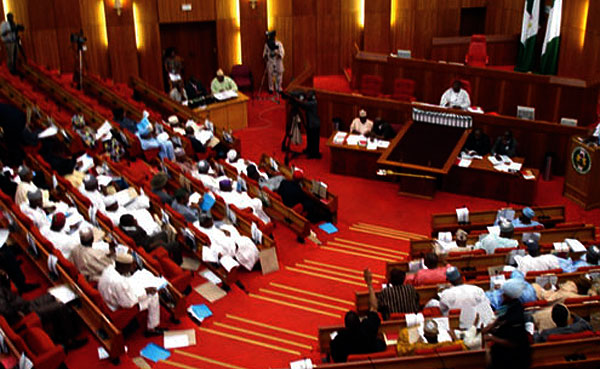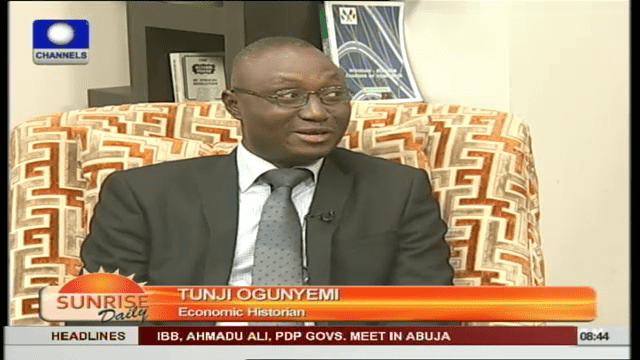The Ministry of Finance has joined the effort by the Federal Government to re-assure Nigerians that the country’s economy remains on a sound footing, despite the global economic uncertainty.

The Ministry, in a statement referred to numerous comments and articles in the media, questioning the performance of the nation’s economy as well as casting doubt over the management of the Excess Crude Account and the External Reserves of the country.
While promising to continue to make effort to respond to demands for greater transparency in the management of the nation’s revenues, the Ministry declared that: “the Nigerian economy is strong. Our economic performance is robust when viewed against a whole range of objective factors. Inflation is now down to single-digit at 9.0% in January 2013, compared with 12.6% in January 2012. The exchange rate has been relatively stable, and the fiscal deficit at just under 2% of GDP is on a downward trajectory, and below our threshold of 3% of GDP.
“Our national debt is at a sustainable level at about 19.4% of GDP. Overall, GDP growth for 2012 was 6.5%, and projected at 6.75% for 2013, compared with the projected global growth of 3.5%. The above facts have been independently noted and validated by international ratings agencies (such as Fitch, Standard & Poor’s and Moody’s) who have upgraded the country’s economic outlook, even as other countries are being downgraded. In addition, Nigeria’s bonds have recently been included in the Barclays and JP Morgan Emerging Market indices.”
The ministry urged Nigerians to stop denigrating the efforts being made to correct things that are wrong in the system, maintaining that the current administration is focused on diversifying and growing the economy “through investments in agriculture, housing and construction, manufacturing, aviation, power, roads, rail, solid minerals and the information and communication technology (ICT) sectors by both government and the private sector,” adding that the economy is certainly moving in the right direction.
On the external reserves, the ministry explained the three part components to be made up of “the CBN’s external reserves, the Excess Crude Account, and the Federal Government’s funds belonging to agencies such as the Nigerian National Petroleum Corporation for joint venture cash calls and so on. This is simply a matter of definition, and follows international best practices and reporting guidelines.”
On the claims of inconsistency of account balances provided by the Ministry of Finance and the CBN, the statement said: “It is worth noting that the Ministry of Finance typically reports its balances following Federal Accounts Allocation Committee (FAAC) Meetings, which often take place at the middle of the month, whereas CBN data are reported at the end of each month. There is thus a time lag between the reports from the two institutions.
“As a result, there are usually some differences due to ‘transit items’ which are yet to be reconciled in both accounts. In addition, for quite a while, the CBN excess crude reports have included the $1 billion allocated to the Sovereign Wealth Fund as this is still domiciled with the CBN, whereas the Ministry of Finance does not regard it as part of the distributable Excess Crude Account.”
ACN is myopic
The perception of the Finance Minister has been reiterated by the Senior Special Assistant to President Goodluck Jonathan on Public Affairs, Doyin Okupe who in a statement described the claim by the Action Congress of Nigeria (ACN) that the nation’s economy is in danger of collapse as lacking in substance and runs contrary to the verdicts of reputable international rating agencies who have consistently upgraded the country’s economic ratings in the last one and a half years.
The statement signed by Mr Okupe reads “For a fact, there are incidents of crude oil theft which had existed for several decades before this administration came on board. However, the truth is that this is currently being tackled through proactive steps by the government. The opposition is most probably aware of the fact that President Goodluck Jonathan recently secured the co-operation of the Prime Minister of the United Kingdom and French President on measures to prevent refineries in Europe from buying crude oil stolen from Nigeria.”
“Similarly, the Jonathan administration has provided more and better surveillance boats for the Nigerian Navy to enhance patrol of our coastal waters. This has resulted in arrest of several vessels engaged in oil theft and these were well reported in the Nigerian print and electronic media.”
Mr Okupe drew the attention of the opposition political party to the Petroleum Industry Bill currently before the National Assembly which it says was conceived by President Jonathan to provide for best practice processes for acreage availability, bidding and awards and therefore address the problems of dwindling oil and gas exploratory opportunities, and corruption among other problems in the sector.
“One wonders if the ACN would have ignored the ratings by FITCH, STANDARD & POOR’S, MOODY’S and JP MORGAN if those bodies had turned in a negative verdict on the Nigerian economy. The only conclusion one can draw from this is that the opposition has once again chosen the myopic and jaundiced path of public policy analysis rather that base its assessment on verifiable, objective indices. Unfortunately, a matter as sensitive as a Nation’s economy ought not to be subjected to this fashion of blind politicking.”
While assuring Nigerians that the Federal Government remains committed to implementing sound economic policies and development of the Nation’s infrastructure, the presidency urged politicians to exhibit statesmanship in addressing issues of critical nature rather than seeking to score cheap points in desperate manner.




